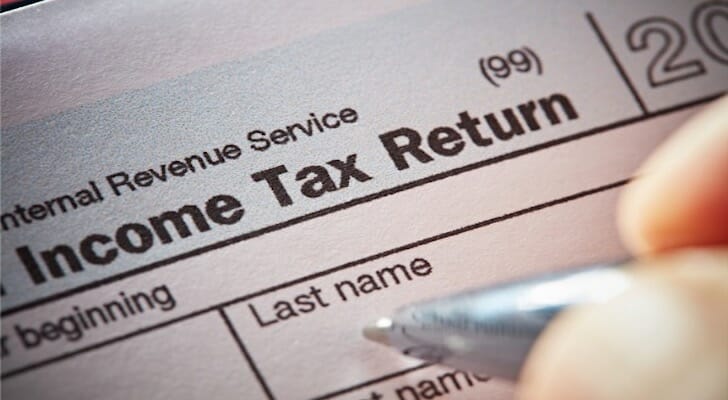A tax consultant can help you minimize your tax liability, capitalize on tax deductions and manage your overall tax situation. With more expertise than standard tax preparers, tax consultants are able to address more complex tax-related needs, such as tax planning, inheritance issues and charitable giving. Often, these advisors have training in tax law or accounting. Their fees vary depending on the scope of work they provide and their level of skill and experience.
If you need further help with your taxes, investments or long-term finances, a financial advisor could help in creating a financial plan.
What Does a Tax Consultant Do?
Tax consultants are professionals who specialize in tax law and financial-related counseling. They advise clients on income tax returns and a range of financial matters, including trust and estate taxes and retirement taxes. Tax consultants must stay informed on the most recent tax requirements and law changes, both on the federal and state levels.
Many tax consultants specialize in business tax services. This can involve tasks like minimizing a company’s tax liability, ensuring a company is maximizing its tax benefits.
Tax consultants usually work for financial consulting firms, public accounting firms or government agencies. That said, some may operate completely independently. In many cases, tax consultant services are available online, although you often can also access their services in person at an office.
Services Provided by Tax Consultants
Tax consultants offer a variety of services, from preparing tax returns to providing broader financial guidance. Common services include:
- Preparing tax returns
- Looking for deductions
- Minimizing tax liability in retirement
- Dealing with taxes on rental property income
- Helping to manage capital gains taxes
- Sorting through tax implications of major life events, like marriage, divorce, deaths and births
How Much Does a Tax Consultant Cost?
Tax consultant fees vary widely, as they’re based on several factors. Location plays a major role, with prices peaking where the cost of living is highest. Another factor is the complexity and scope of your tax situation. In short, the more the tax consultant has to deal with, the more you’ll pay. Also, if your situation requires highly specialized knowledge about tax codes, their fees will be commensurate with their qualifications.
Let’s say you only need a simple tax return prepared for you and your family. Based on data from the National Society of Accountants (NSA), the average tax return costs $220 to prepare Form 1040 without itemized deductions and $323 for an itemized Form 1040 with Schedule A.
In comparison, the average cost of having a tax firm prepare Form 1120, the form that corporations must file, is $913, according to the same NSA data. Having a tax expert prepare Form 706, the documentation that some estates and executors must file, runs over $1,300.
Tax Consultants vs. Tax Preparers
Before you begin looking for a tax consultant, it’s important to make sure they’re exactly what you need. If you simply need help filing your taxes, a tax preparer might make more sense. Beyond that, a tax consultant is likely the way to go.
A tax preparer is the simplest version of a tax professional. Rather than wading into extensive, specialized tax codes, they focus solely on preparing income tax forms for those who need to file. This could include your Form 1040, Form 1099 and others. While tax preparers often work with individuals, some may help business owners file for their companies.
Tax consultants work with a similarly wide variety of clients. But where they differ is in the complexity of the services they provide. For example, a tax consultant can help you manage your tax issues during a divorce, a probate case and other situations. A tax preparer, in contrast, sticks to only basic income tax returns.
The most qualified tax consultants hold licensure as certified public accountants (CPA) or enrolled agents (EA). These certifications reflect the formal education and experience required to provide comprehensive strategic advice.
How to Find a Tax Consultant

Tax consultants possess a range of different specialties and qualifications, so it’s important to do your homework when choosing one. If you can’t find the right one at a firm near you, you may want to consider online consulting.
When looking for a tax consultant, consider these tips:
- Get referrals: Perhaps the best way to come across tax consultant recommendations is to speak with friends and family who have used one. By speaking with someone you trust, you can feel confident that the guidance you’re receiving is reliable. Outside of this method, there are a number of online resources that can help you find a tax consultant.
- Build trust: When you start to meet with potential consultants, look for key characteristics. Make sure you can easily contact them and that you can trust them enough to hand over all of your personal records. Qualifications and the subsequent proof of them are always a plus, and you also should try to seek out any past history or existing clients to reference.
- Look for good communication skills: A key trait of a good tax consultant is excellent written and verbal communication skills. They should be able to incorporate current tax law findings and research into a strategy that’s easy to comprehend. This is crucial when it comes to ensuring that you fully understand the tax strategy that’s being implemented in your situation.
Requirements for Becoming a Tax Consultant
There is no formal certification process for tax consultants. That said, they often have a bachelor’s degree in accounting, finance, tax law or another related field. Additionally, paid consultants or advisors who prepare tax returns must register for a Preparer Tax Identification Number (PTIN).
The IRS provides the PTIN number option on an active or provisional basis. Tax return preparers who must pass the competency test receive provisional status, while CPAs, EAs and attorneys automatically receive active status. Additionally, paid tax return preparers must pass both a tax compliance check and a sustainability check. All preparers who meet these requirements become registered preparers under IRS law.
When a Tax Consultant Makes Sense
A tax consultant is often used when a tax situation extends beyond basic tax return preparation. Complicating factors can include income from multiple sources, ownership of rental property, business income, stock sales or complex deductions. In these cases, planning decisions made during the year can affect the final tax outcome, not just the filing process.
Tax consultants are also commonly involved during major financial or life changes. Events such as selling a business, receiving an inheritance, restructuring compensation or relocating across state lines can trigger tax consequences that require advance analysis. A consultant may review timing, reporting requirements and compliance issues tied to these transitions.
For ongoing tax planning, a consultant may work alongside other professionals. This can include coordinating with attorneys on estate matters or working with financial advisors on retirement withdrawals and investment-related taxes. Their focus remains on how tax rules apply to income, assets and transactions over time.
By contrast, taxpayers with straightforward wage income and limited deductions may not require this level of service. In those cases, basic preparation may be sufficient. The distinction is less about income level and more about the number of moving parts involved in a taxpayer’s financial situation.
Bottom Line

Tax consultants typically have extensive knowledge of tax codes, which allows them to help you lower your taxes. Generally, this kind of advisor works for you year-round, as opposed to a tax preparer, whose job is seasonal. Although you don’t have to hire a consultant, it’s important to ask yourself whether you could benefit from having one, as they can save you a considerable amount of time and money.
Tips for Reducing Your Tax Liability
- Consider working with a financial advisor who can help minimize your tax liability in retirement. Finding a financial advisor doesn’t have to be hard. SmartAsset’s free tool matches you with vetted financial advisors who serve your area, and you can have a free introductory call with your advisor matches to decide which one you feel is right for you. If you’re ready to find an advisor who can help you achieve your financial goals, get started now.
- Keep in mind that there are certain actions you can take yourself to reduce your tax liability. When tax time comes, you’ll want to consider making tax deductions to minimize your taxable income. You should also ask yourself whether you could benefit from a tax shelter or a tax extension.
Photo credit: ©iStock.com/Bill Oxford, ©iStock.com/Squaredpixels, ©iStock.com/utah778
